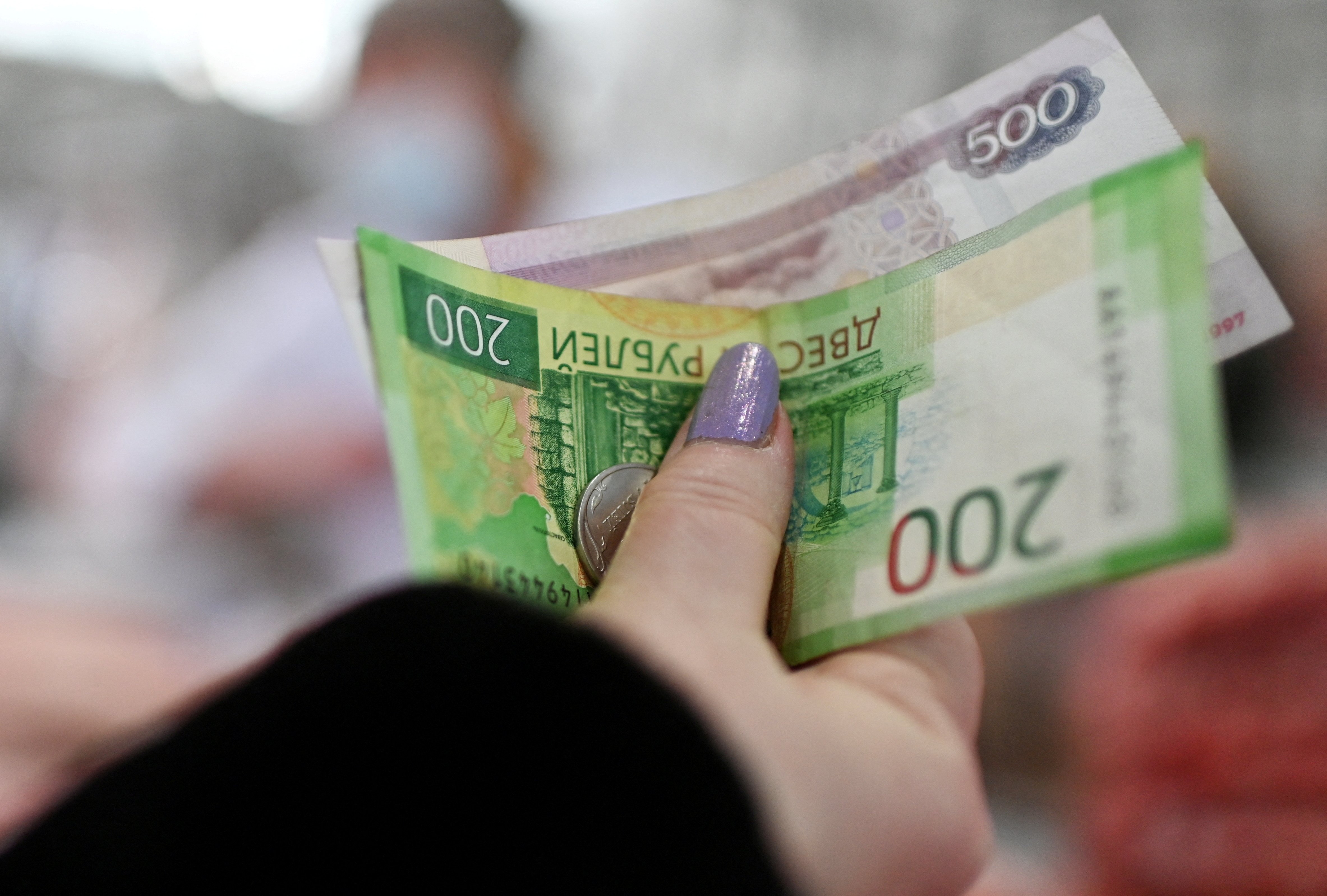Today’s News
In Russia, a noticeable silence has emerged regarding any connection between the recent decline of the rouble and the Ukrainian attack on the Kursk region.
Despite a 9% drop in the rouble against the U.S. dollar since August 6—the day of the attack, which is the largest on Russian territory by a foreign power since World War Two—Russian media and analysts in state-controlled banks have largely avoided linking the two events.

Image Source: Reuters
Currency traders, speaking anonymously due to the sensitive nature of the situation, indicated that foreign banks were the primary sellers of the Russian currency. The rouble reached a 10-month low against the dollar and its weakest level against the yuan since June 24 during trading on August 13. State banks, however, have mostly attributed the rouble’s fall to economic factors rather than the attack.
Sberbank, Russia’s largest bank, pointed to U.S. sanctions against Moscow’s Stock Exchange and reduced currency sales by exporters as key reasons for the currency’s decline. They noted that exporters might have scaled back currency sales recently due to more lenient requirements and the end of tax and dividend periods.
The Russian central bank has not commented on the rouble’s depreciation, and the government has remained silent as well. While leading Russian business media reported on the rouble’s decline, they avoided linking it to the Kursk attack. This cautious approach reflects an effort within Russia to prevent negative economic news from reaching the broader public.
The refrain from connecting the rouble’s decline to the Kursk attack underscores Russia’s determination to present its USD 2.0 trillion economy as resilient and self-sufficient, even under the intense pressure of Western sanctions.
Finance Minister Anton Siluanov emphasized the strength of Russia’s finances, stating, “It is important for us to build this financial shield so that all the financial pressures that anyone wants to exert on us are deflected… This is exactly what is happening now.”
One trader suggested that recent heavy rouble sales might also be linked to the upcoming halt of overseas money transfers by Austria’s Raiffeisen Bank. As the rouble began to rebound on Wednesday, some analysts downplayed any connection between the attack and the currency’s fall, while others predicted that it would soon stabilize. Economist
Mikhail Belyaev dismissed the idea that the rouble’s decline was related to the Kursk incident, calling such a linkage “an approach that… has no relation to reality.”
Other News
EY and KPMG Gain from PwC’s Regulatory Woes in China
Ernst & Young (EY) and KPMG have captured over half of PwC’s corporate clients in China as PwC faces a regulatory probe. PwC has lost more than 40 clients, including major state-owned enterprises.
Bank of America Secures 2026 FIFA World Cup Sponsorship
Bank of America has partnered with FIFA to sponsor the 2026 World Cup, marking its first-ever global sponsorship in the banking category. The tournament will feature 48 teams across 104 matches.
NAB Profit Dips, Investors Welcome Margin Stability
National Australia Bank reported an 8% drop in quarterly profit due to rising costs and increased competition but maintained stable net interest margins, boosting investor confidence.
Risk Disclosure:
Securities, Futures, CFDs and other financial products involve high risks due to the fluctuation in the value and prices of the underlying financial instruments. Due to the adverse and unpredictable market movements, large losses exceeding your initial investment could incur within a short period of time.
Please make sure you fully understand the risks of trading with the respective financial instrument before engaging in any transactions with us. You should seek independent professional advice if you do not understand the risks explained herein.
Disclaimer:
This information contained in this blog is for general reference only and is not intended as investment advice, a recommendation, an offer, or an invitation to buy or sell any financial instruments. It does not consider any specific recipient’s investment objectives or financial situation. Past performance references are not reliable indicators of future performance. Doo Prime and its affiliates make no representations or warranties about the accuracy or completeness of this information and accept no liability for any losses or damages resulting from its use or from any investments made based on it.
The above strategies reflect only the analysts’ opinions and are for reference only. They should not be used or considered as the basis for any trading decisions or as an invitation to engage in any transaction. Doo Prime does not guarantee the accuracy or completeness of this report and assumes no responsibility for any losses resulting from the use of this report. Do not rely on this report to replace your independent judgment. The market is risky, and investments should be made with caution.



